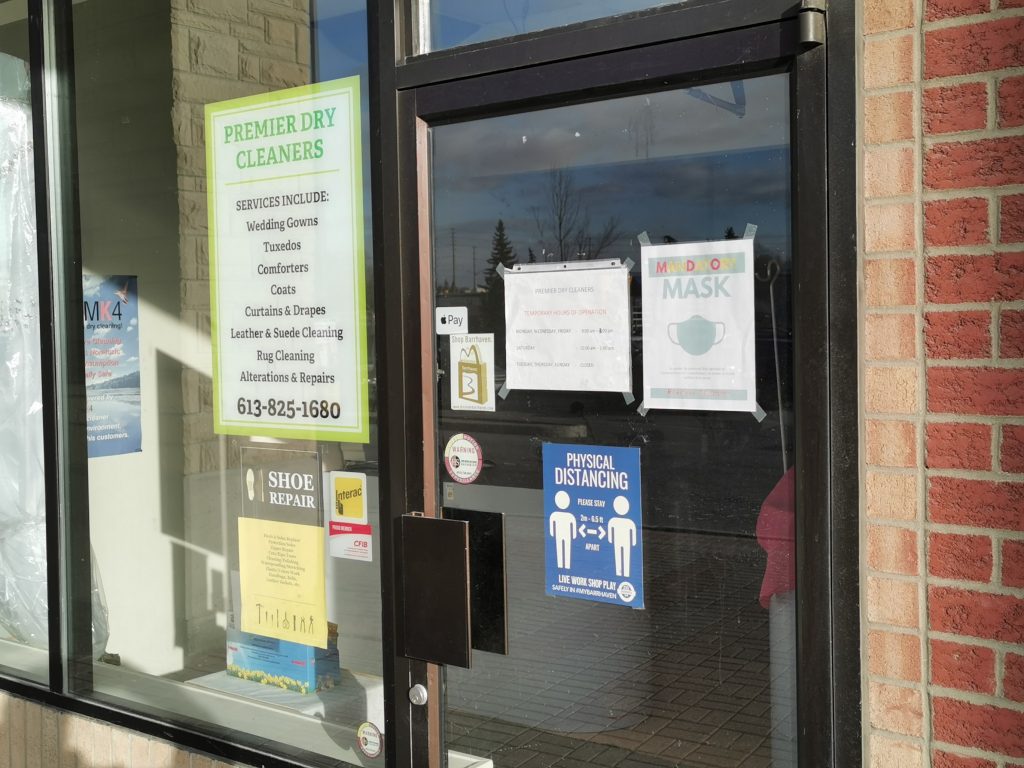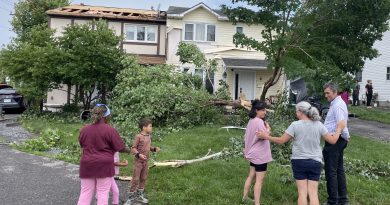Local business fighting to survive as pandemic ravages dry cleaning industry
By Jeff Morris
While much of the government and media focus on businesses being affected by COVID-19 have been on the restaurant and hospitality industries, the decimation of other sectors have flown under the radar.
One of the hardest hit sectors is the dry cleaning business.
“The pandemic has hit us very hard,” said Doraine Coates of Premier Dry Cleaners in Barrhaven. “The people in our industry are hurting.”
Coates, who bought the business as a franchise three years ago, said that the dry cleaning industry has been ignored by the government. She said that compounding the problem is the classification of dry cleaners as essential businesses.
“It doesn’t make sense,” she said. “For a business to be essential, it should be something you can’t do without. Dry cleaning doesn’t fall into that category.”
Because dry cleaners are considered essential businesses, Premier Dry Cleaners is not eligible for many of the grants and packages that other businesses have qualified for. Dry cleaners were deemed an essential service because of their role in cleaning and disinfecting the clothing worn by frontline workers.
“We’re not getting the help we need,” Coates said.

In a typical week, Coates said she only gets about three customers. She said the business was growing heading into the pandemic. But when the first wave and lockdown measures hit in March, 2020, business came to a standstill.
“We went from 10 to zero instantly,” she said. “I have regular customers that I have not seen in more than a year. It’s really bad.”
The difficulties facing the dry cleaning industry have been a lagging indicator of other struggling sectors. Many people are working from home and do not need regular dry cleaning service for their work clothes, but the dry cleaning business extends far beyond the office world.
“I have not had one wedding dress in here in over a year,” Coates said. “Weddings are big part of our business, especially in the summer months. We also do a lot of business from people travelling, but for the last year, nobody has gone anywhere.”
Coates said that even everyone is vaccinated and everyday life eases into its new normal, her business will not be what it was before the pandemic.
“People have been working from home, and when things get back to normal, they may still be working from home with the exception of maybe a day or two a week,” Coates said. “We used to do a lot of suits and shirts for men, and work clothes for women. But now, people are just working at home. They might throw a shirt on for a Zoom call once in a while, but people are wearing casual clothes most of the time.”
The Canadian Fabricare Association, a nationwide group representing dry cleaners, says that business during the pandemic is down by at least 70 per cent. At least 30 per cent of all dry cleaning businesses in Canada have permanently closed.
Coates said that she is receiving some relief for her rent at the Barrhaven Town Centre. Without that subsidy, she said her business would not be open.
“It’s exhausting,” she said. “The uncertainty is difficult, and sometimes I just need a day off. But I can’t take a day off because I can’t afford to hire an employee right now.”
With winter finally over after one final blast of snow last week, Coates is hoping that families will come in with winter clothing to be cleaned before it is stored away for the spring and summer. She is also hoping that people will come in with comforters and other bedding for an annual spring cleaning.
“I’m trying to hang on, but it’s been really tough,” she said. “It’s heartbreaking to see so many small businesses in the community fighting to survive. There are people with businesses who need help and are really suffering.”






